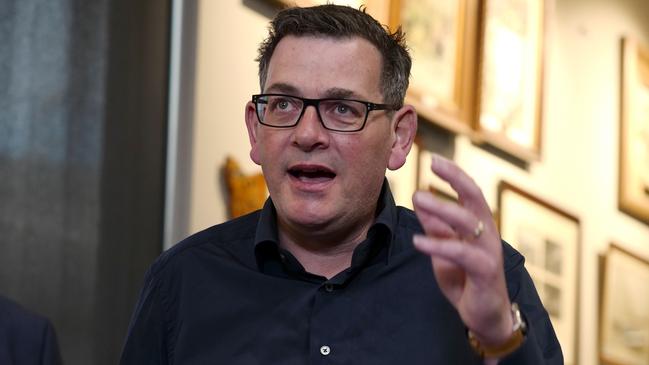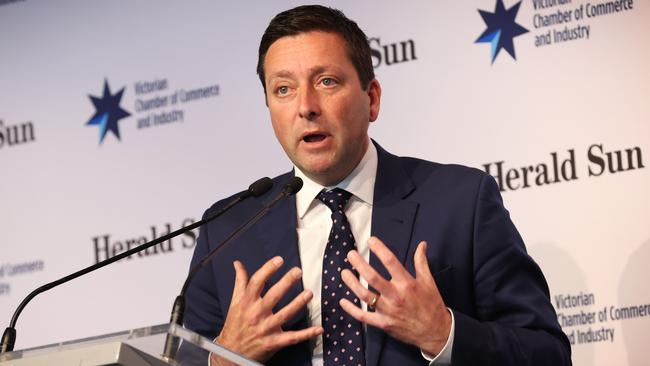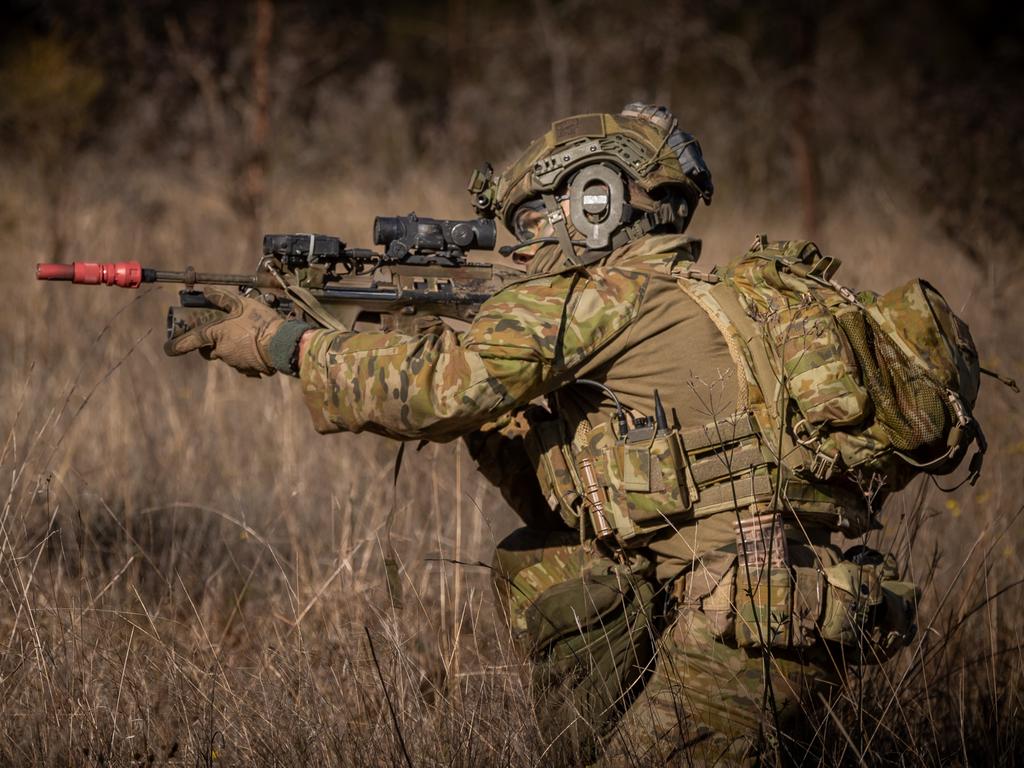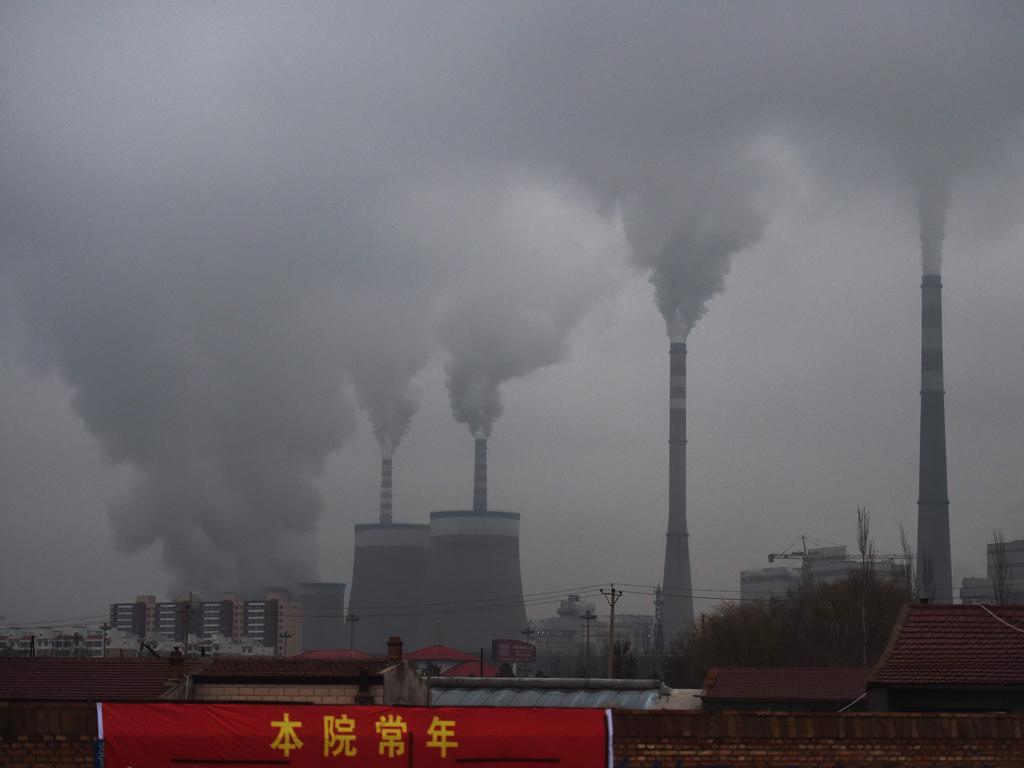Victorian election ‘spendathon’ risks credit rating
The Victorian election ‘spend-athon’ and soaring infrastructure funding commitments will intensify credit rating pressure on the state, S&P Global Ratings says.

The Victorian election “spend-athon” and soaring infrastructure funding commitments will intensify credit rating pressure on the state with the “weakest budget position by far” in the country, S&P Global Ratings says.
Ahead of the November 26 election, S&P Global Ratings analyst Anthony Walker said the actual deficit in Victoria was “narrowing quite sharply” from record levels but was under sustained pressure from major flooding events and election spending.
Amid soaring debt across the nation following unprecedented pandemic spending, Mr Walker said the Victorian election had become a “spendathon”, with the opposition Liberal Party rushing to commit to new announcements made by Premier Daniel Andrews on the campaign trail.
The warning comes after Victoria had its credit rating cut to AA during the pandemic following a rapid rise in actual and expected debt levels.
“What we are very interested in is how (the election promises) are funded, and over what time period they are funded. There is a very large infrastructure commitment, and the pressure is growing nearly daily via new announcements. We are trying to figure out how parties will fund this,” Mr Walker said.
He said the commitment by Opposition Leader Matthew Guy to scrap the $34.5bn first stage of the Suburban Rail Loop and redirect funding into the health system could lock in higher ongoing deficits. “How are they going to fund that? Higher taxes? Cutting costs elsewhere? Or borrowing? Victoria’s fiscal policy is tightening compared to the last few years, but it does remain rather loose, particularly on the infrastructure side,” he said.

Melbourne bore the brunt of Covid-19 lockdowns over 2020 and 2021, with a slow vaccine rollout contributing to it experiencing the longest, strictest pandemic restrictions in Australia.
Mr Walker said Victoria now had “the weakest budget position by far”, with gross debt set to almost quadruple to $195.3bn between 2019 and mid-2025.
In comparison, NSW’s debt will almost triple to $176.8bn by the middle of the decade.
Off the back of a mining boom, S&P projects that Western Australia will be the only state to have lower debt by June 2025 compared to pre-pandemic levels, falling by about 20 per cent to $44.8bn.
The federal budget projects national gross debt to peak at $1.16 trillion, or 43.1 per cent of GDP, in mid-2026.
Mr Walker said Victoria was at risk of a further downgrade if spending on capital works continues to explode and the anticipated sharp improvement in deficit levels was not realised.
He said Victoria’s AA rating was based on annual infrastructure spending of less than $20bn – allowing little wriggle room against the estimated current spend of $19.5bn.
“The significantly higher infrastructure spending looks like a structural shift, and that could result in downward pressure (on the credit rating) if you see record after record infrastructure spending,” he said.
Victoria’s credit rating was also predicated on the deficit “significantly narrowing” to less than $0.5bn, against last year’s $13bn deficit.
The Andrews government last week released its mid-year economic and fiscal update, which showed Victoria’s 2022-23 deficit had blown out by $1.8bn to almost $10bn since the May budget.
Net debt in 2025-26 was downgraded from $167.5bn in May to $165.4bn but Victoria still remains on track to have more debt than NSW, Queensland and Tasmania, whose combined debt is set to reach $159.2bn by the same date.
AMP chief economist Shane Oliver last week said massive spending promises during the state election would “exacerbate inflation” and the “time to spend money is when the economy is weak … When you’ve got strong economic activity like Victoria does now, and inflation is a problem, it’s the time to cut back.”
Mr Walker said the big lift in state spending risked adding fuel to the country’s inflationary fire.
“The question is, when is most of that money going out? Is it … in the next 12 months when inflationary pressures are at their peak? At the moment some of it is, but (spending) announcement after announcement is not helping the Reserve Bank’s inflation fight.”






To join the conversation, please log in. Don't have an account? Register
Join the conversation, you are commenting as Logout